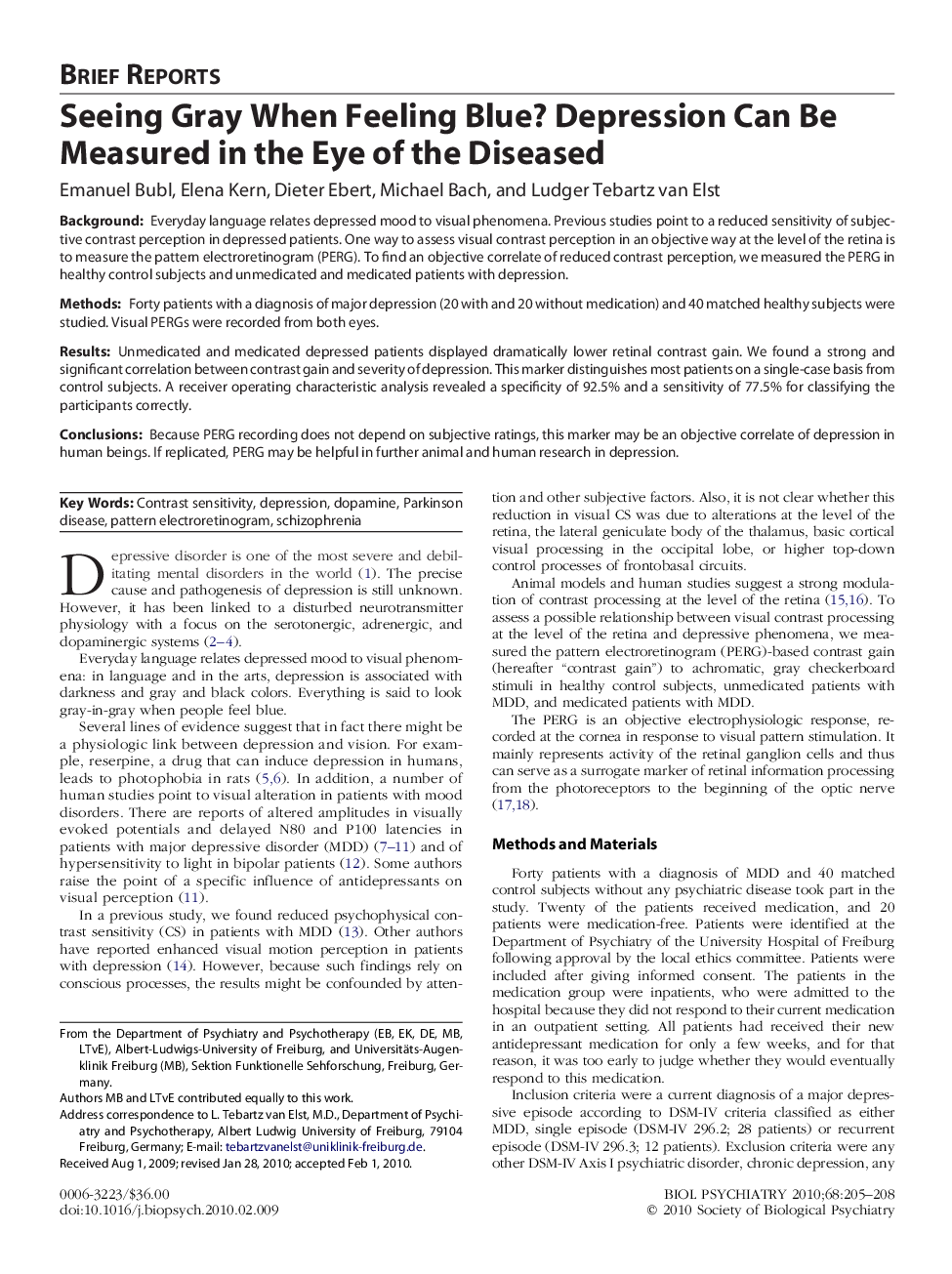| Article ID | Journal | Published Year | Pages | File Type |
|---|---|---|---|---|
| 4178860 | Biological Psychiatry | 2010 | 4 Pages |
BackgroundEveryday language relates depressed mood to visual phenomena. Previous studies point to a reduced sensitivity of subjective contrast perception in depressed patients. One way to assess visual contrast perception in an objective way at the level of the retina is to measure the pattern electroretinogram (PERG). To find an objective correlate of reduced contrast perception, we measured the PERG in healthy control subjects and unmedicated and medicated patients with depression.MethodsForty patients with a diagnosis of major depression (20 with and 20 without medication) and 40 matched healthy subjects were studied. Visual PERGs were recorded from both eyes.ResultsUnmedicated and medicated depressed patients displayed dramatically lower retinal contrast gain. We found a strong and significant correlation between contrast gain and severity of depression. This marker distinguishes most patients on a single-case basis from control subjects. A receiver operating characteristic analysis revealed a specificity of 92.5% and a sensitivity of 77.5% for classifying the participants correctly.ConclusionsBecause PERG recording does not depend on subjective ratings, this marker may be an objective correlate of depression in human beings. If replicated, PERG may be helpful in further animal and human research in depression.
